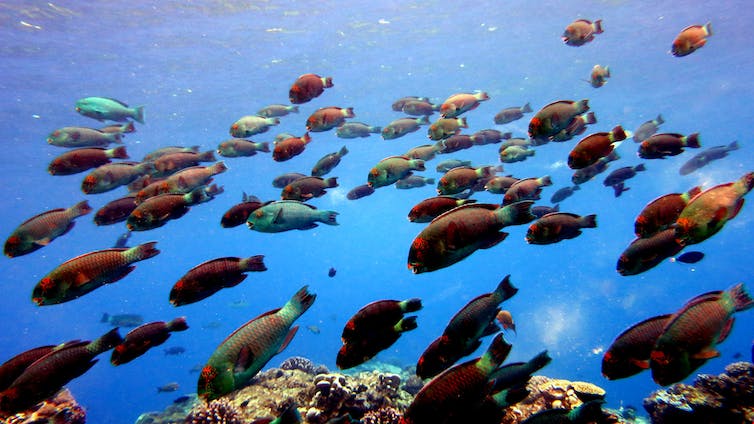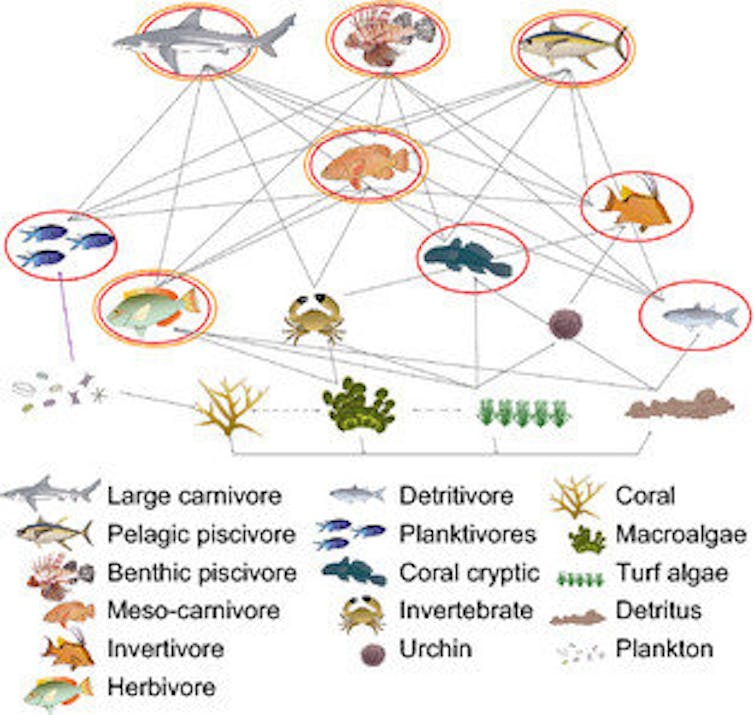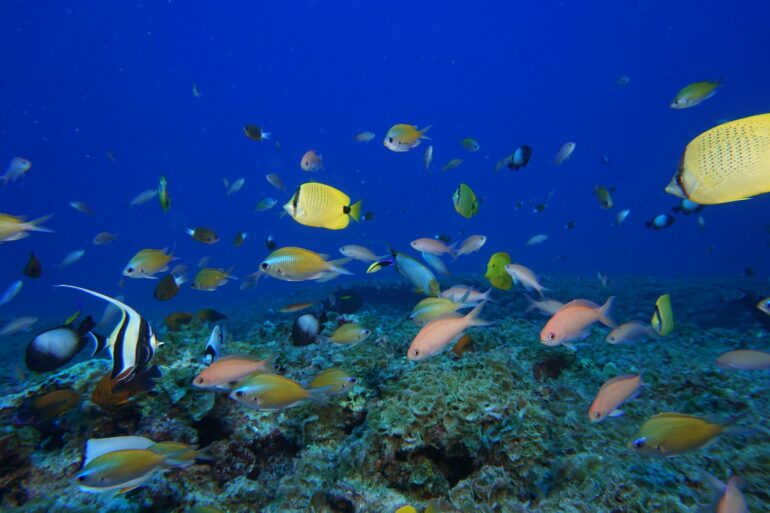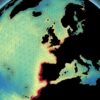
Curious Kids is a series for children of all ages. If you have a question you’d like an expert to answer, send it to [email protected].
What would happen to the ocean if we took out all the fish? – Reny, age 12
The ocean is massive and covers most of the surface of our planet. In addition to its size, it’s packed with life, ranging from an astounding diversity of plants, microbes, worms, corals and crabs to squids, whales and, yes, even fish. The ocean is full of fish, so much so that they make up the second-largest amount of all carbon – the material that makes up living things – in the entire animal kingdom. They’re just behind the group containing insects and crustaceans.
Most people only interact with the ocean from a beach or in a boat, so it can be hard to wrap your head around how many fish there really are. But the ocean is swarming with them, from its surface to its depths.
These fish also come in all kinds of shapes and sizes, ranging from the tiny sardines, guppies and blennies that you might see on a coral reef to massive tunas and whale sharks that you might find out in the open ocean.
These fish perform all kinds of roles in their ecosystems that support the lives of other organisms around them. If they disappeared one day, the ocean would look very different.

School of slopehead parrotfish.
NOAA, Kevin Lino
I’m a scientist who studies fish, their diversity and all the ways they contribute to ocean environments.
Fish as food
Fish play important roles as both predators and prey in ocean ecosystems. Thousands of species throughout the ocean and terrestrial ecosystems rely on fish for food – including people.
In coral reef ecosystems, small fish are eaten by larger fish and other marine animals. This means the little fish form the base of the food web – they provide energy to the bigger fish and other creatures.

Links between different species of coral reef animals.
Global Change Biology, Rogers et al., 2015
Outside of the water, many birds, mammals and reptiles eat fish and rely on them as an essential source of protein.
Even land plants can benefit from the presence of fish. On the western coast of the United States, salmon returning to small streams after spending several years at sea function as a conveyor belt of nutrients. The salmon feed not only animals that catch them, like bears, but also the plants that border the streams. Studies have shown that some plants get 70% of their nitrogen from salmon that die on or near the river banks.
Humans also depend on fish as a food source. Fish and other seafood products are an important protein source for nearly 3 billion people. Human populations have been eating and following fish around the world for thousands of years.
Fish maintain habitats
Fish are also more than just food. As fish themselves forage…



